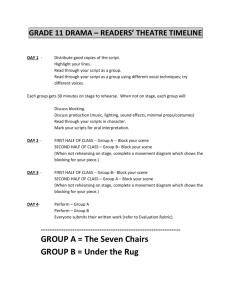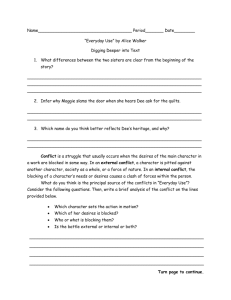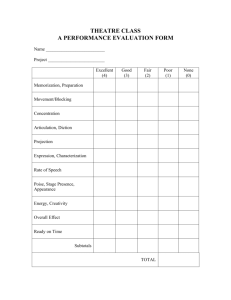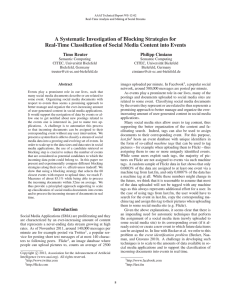Nebraska Coaches Association
advertisement
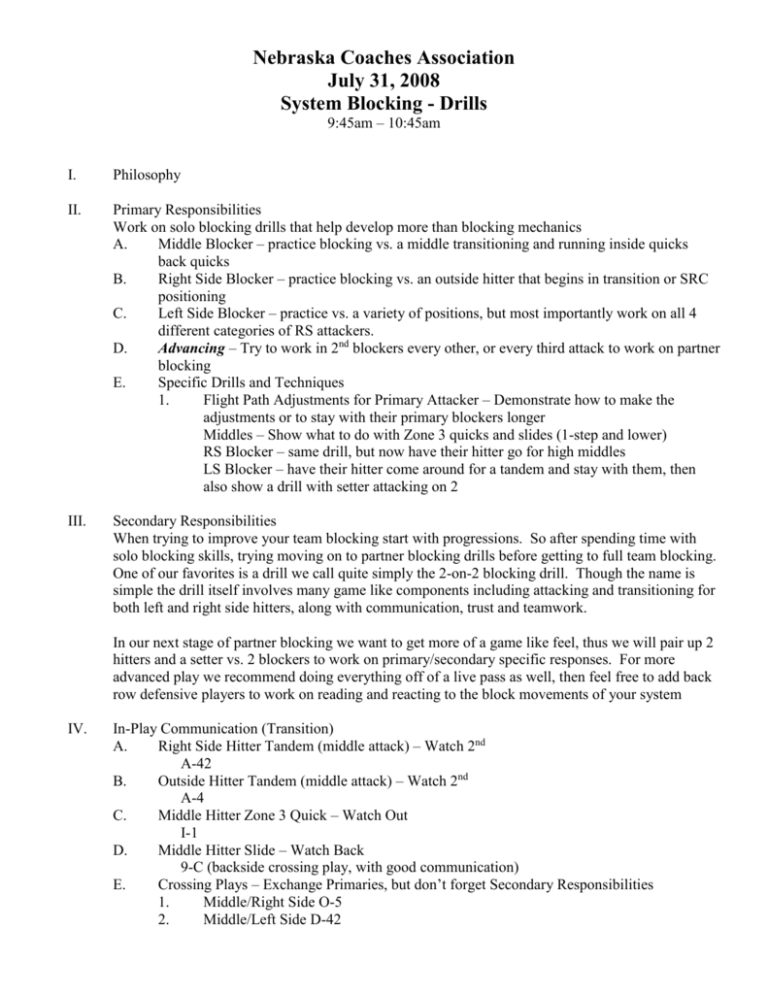
Nebraska Coaches Association July 31, 2008 System Blocking - Drills 9:45am – 10:45am I. Philosophy II. Primary Responsibilities Work on solo blocking drills that help develop more than blocking mechanics A. Middle Blocker – practice blocking vs. a middle transitioning and running inside quicks back quicks B. Right Side Blocker – practice blocking vs. an outside hitter that begins in transition or SRC positioning C. Left Side Blocker – practice vs. a variety of positions, but most importantly work on all 4 different categories of RS attackers. D. Advancing – Try to work in 2nd blockers every other, or every third attack to work on partner blocking E. Specific Drills and Techniques 1. Flight Path Adjustments for Primary Attacker – Demonstrate how to make the adjustments or to stay with their primary blockers longer Middles – Show what to do with Zone 3 quicks and slides (1-step and lower) RS Blocker – same drill, but now have their hitter go for high middles LS Blocker – have their hitter come around for a tandem and stay with them, then also show a drill with setter attacking on 2 III. Secondary Responsibilities When trying to improve your team blocking start with progressions. So after spending time with solo blocking skills, trying moving on to partner blocking drills before getting to full team blocking. One of our favorites is a drill we call quite simply the 2-on-2 blocking drill. Though the name is simple the drill itself involves many game like components including attacking and transitioning for both left and right side hitters, along with communication, trust and teamwork. In our next stage of partner blocking we want to get more of a game like feel, thus we will pair up 2 hitters and a setter vs. 2 blockers to work on primary/secondary specific responses. For more advanced play we recommend doing everything off of a live pass as well, then feel free to add back row defensive players to work on reading and reacting to the block movements of your system IV. In-Play Communication (Transition) A. Right Side Hitter Tandem (middle attack) – Watch 2nd A-42 B. Outside Hitter Tandem (middle attack) – Watch 2nd A-4 C. Middle Hitter Zone 3 Quick – Watch Out I-1 D. Middle Hitter Slide – Watch Back 9-C (backside crossing play, with good communication) E. Crossing Plays – Exchange Primaries, but don’t forget Secondary Responsibilities 1. Middle/Right Side O-5 2. Middle/Left Side D-42 V. Pre-Defensive Communication (During Service) Give live examples of each blocker calling out the information – one at a time for the coaches to hear and see each position. Then, do all at one time for a real feel. Important – Stress Posture, Eye Contact, Team Presence and Team Communication A. Middle Blocker – Number of Hitters, Numbers of the Hitters and Locations B. Right Side Blocker – Power Player(s) C. Left Side Blocker – Setter Location and tell LB player Prior to live drill work on ‘Team Reality Blocking Drill’ – Blocking vs. Transition w/o Hesitation Add in live serving – 5 point serving game to work on their specific communication and movements VI. Advanced Communication (During Service) – slow it down so that we are giving effective communication. Important – get everything in during live play A. Middle Blocker – Adjust base position to properly handle oppositions strength B. Right Side Blocker – Communicate your teams transition play C. Left Side Blocker – How to handle the front row setter D. Beach Blocking Signals The final objective to test our team’s resolve is to give them an Ultimate Challenge Drill based on your desired needs. Incorporate 5 challenges that primarily work on defense, offense, or both. In this case we focus on defense. Drill – Serve Ball, defend free ball, receive free ball (keeps team in check), defend opposition having a setter ball, then joust to finish. Must get all 5 to rotate

